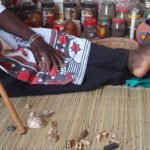Mutare – In a resolute declaration, President Emmerson Mnangagwa affirmed Zimbabwe’s steadfast commitment to de-dollarisation, emphasizing the need for economic self-reliance and the protection of national interests. Speaking at the commissioning of a fruit juice and water processing plant in Mutare, President Mnangagwa outlined the phased approach towards de-dollarisation, while highlighting the significance of the Zimbabwe Gold (ZiG) currency in achieving economic stability and prosperity for the nation.
Amidst a sea of eager onlookers, President Mnangagwa expressed his determination to steer Zimbabwe away from dependence on foreign currencies, particularly those harboring negative sentiments towards the country. With the successful introduction of the ZiG currency earlier this year, the President stressed that the time was nearing for the nation to embrace their own currency wholeheartedly.
“In two years, in fact, two years is too far off, but there will come a time when our ZiG currency has fully penetrated the market, then I will give a directive that the country will be using the ZiG only,” President Mnangagwa proclaimed with conviction. He further emphasized that the US dollar, once universally accepted, would no longer be utilized for transactions within the country.
While acknowledging the temporary use of US dollar tokens for performances and entertainment, the President assured the nation that within a mere two months, these tokens would be replaced by the ZiG, solidifying its position as the official currency of Zimbabwe. Aligning with the sentiments of economic nationalism, President Mnangagwa affirmed, “That is why we now have the Zimbabwe Gold currency (ZiG), that is our currency, a currency which we are propelling. We are propelling our currency.”
President Mnangagwa urged Zimbabweans to have faith in their local currency, highlighting the unsustainability of relying on a currency belonging to countries with hostile attitudes towards Zimbabwe. Drawing attention to the potential risks associated with continued dependence on foreign currencies, he emphasized the importance of safeguarding the nation’s interests in the face of adversity.
“Biden (US President Joe) does not like us, but you like the money from his country, does that work? So as Zanu PF, we cannot keep using and relying on a currency that belongs to people who do not like us because one day they will try to hamper our efforts, then we will not have a leg to stand on,” President Mnangagwa cautioned, invoking the need for self-sufficiency and resilience.
Celebrating the inauguration of the fruit juice and water processing plant, President Mnangagwa commended the collaborative efforts of Zimbabweans in achieving remarkable milestones. The plant, poised to produce 16,000 liters of fruit juice daily, is a testament to the potential inherent in Zimbabwe’s resources and the strength of unity among its people.
“The plant we are commissioning today is a demonstration of what Zimbabweans can achieve when we put our hands and minds together,” President Mnangagwa acknowledged proudly. He further emphasized the significance of supporting locally produced goods, encouraging Zimbabweans to embrace and promote their own brands over imported alternatives.
As the country gears up to host the upcoming Southern African Development Community (SADC) Summit, President Mnangagwa highlighted the opportunity to showcase Zimbabwe’s home-grown solutions and products. The baobab juice, among other locally made quality products, would take center stage, offering visiting dignitaries a taste of Zimbabwe’s rich cultural heritage and economic potential.
“The industrialization week will provide a platform for stakeholders to share opportunities, ideas, and experiences on driving industrialization and economic transformation in the SADC region, through innovation,” President Mnangagwa explained. He emphasized the role of innovation hubs and industrial parks in modernizing and industrializing Zimbabwe, underscoring the importance of collective effort and unity in achieving economic growth and development.
President Mnangagwa’s vision for Zimbabwe encompasses not only the de-dollarisation process but also a comprehensive strategy for empowering learners and institutions of higher learning. He highlighted the establishment of the National Venture Capital Company, designed to support innovation and modernization, while encouraging collaboration between the private sector and higher education institutions.












